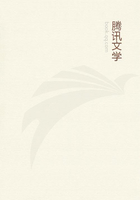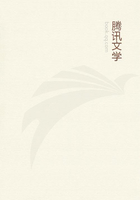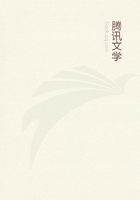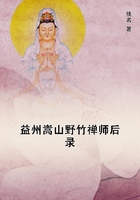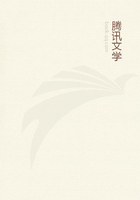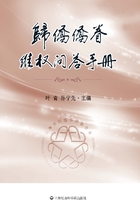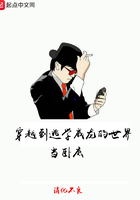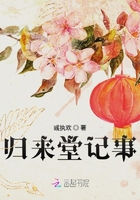Quantitative perfection is entirely distinct from this.It consists in the completeness of anything after its kind, and is a mere concept of quantity (of totality).In its case the question of what the thing is to be is regarded as definitely disposed of, and we only ask whether it is possessed of all the requisites that go to make it such.What is formal in the representation of a thing, i.e., the agreement of its manifold with a unity (i.e., irrespective of what it is to be), does not, of itself, afford us any cognition whatsoever of objective finality.For since abstraction is made from this unity as end (what the thing is to be), nothing is left but the subjective finality of the representations in the mind of the subject intuiting.This gives a certain finality of the representative state of the subject, in which the subject feels itself quite at home in its effort to grasp a given form in the imagination, but no perfection of any object, the latter not being here thought through any concept.For instance, if in a forest I light upon a plot of grass, round which trees stand in a circle, and if I do not then form any representation of an end, as that it is meant to be used, say, for country dances, then not the least hint of a concept of perfection is given by the mere form.To suppose a formal objective finality that is yet devoid of an end, i.e., the mere form of a perfection (apart from any matter or concept of that to which the agreement relates, even though there was the mere general idea of a conformity to law) is a veritable contradiction.
Now the judgement of taste is an aesthetic judgement, one resting on subjective grounds.No concept can be its determining ground, and hence not one of a definite end.Beauty, therefore, as a formal subjective finality, involves no thought whatsoever of a perfection of the object, as a would-be formal finality which yet, for all that, is objective: and the distinction between the concepts of the beautiful and the good, which represents both as differing only in their logical form, the first being merely a confused, the second a clearly defined, concept of perfection, while otherwise alike in content and origin, all goes for nothing: for then there would be no specific difference between them, but the judgement of taste would be just as much a cognitive judgement as one by which something is described as good-just as the man in the street, when be says that deceit is wrong, bases his judgement on confused, but the philosopher on clear grounds, while both appeal in reality to identical principles of reason.But I have already stated that an aesthetic judgement is quite unique, and affords absolutely no (not even a confused) knowledge of the object.It is only through a logical judgement that we get knowledge.The aesthetic judgement, on the other hand, refers the representation, by which an object is given, solely to the subject, and brings to our notice no quality of the object, but only the final form in the determination of the powers of representation engaged upon it.The judgement is called aesthetic for the very reason that its determining ground cannot be a concept, but is rather the feeling (of the internal sense) of the concert in the play of the mental powers as a thing only capable of being felt.
If, on the other band, confused concepts, and the objective judgement based on them, are going to be called aesthetic, we shall find ourselves with an understanding judging by sense, or a sense representing its objects by concepts-a mere choice of contradictions.The faculty of concepts, be they confused or be they clear, is understanding; and although understanding has (as in all judgements) its role in the judgement of taste, as an aesthetic judgement, its role there is not that of a faculty for cognizing an object, but of a faculty for determining that judgement and its representation (without a concept) according to its relation to the subject and its internal feeling, and for doing so in so far as that judgement is possible according to a universal rule.
SS 16.A judgement of taste by which an object is described as beautiful, under the condition of a definite concept, is not pure.
There are two kinds of beauty: free beauty (pulchritudo vaga), or beauty which is merely dependent (pulchritudo adhaerens).The first presupposes no concept of what the object should be; the second does presuppose such a concept and, with it, an answering perfection of the object.Those of the first kind are said to be (self-subsisting)beauties of this thing or that thing; the other kind of beauty, being attached to a concept (conditioned beauty), is ascribed to objects which come under the concept of a particular end.
Flowers are free beauties of nature.Hardly anyone but a botanist knows the true nature of a flower, and even he, while recognizing in the flower the reproductive organ of the plant, pays no attention to this natural end when using his taste to judge of its beauty.Hence no perfection of any kind-no internal finality, as something to which the arrangement of the manifold is related-underlies this judgement.
Many birds (the parrot, the humming-bird, the bird of paradise), and a number of crustacea, are self-subsisting beauties which are not appurtenant to any object defined with respect to its end, but please freely and on their own account.So designs a la grecque, foliage for framework or on wall-papers, etc., have no intrinsic meaning; they represent nothing-no object under a definite concept-and are free beauties.We may also rank in the same class what in music are called fantasias (without a theme), and, indeed, all music that is not set to words.

